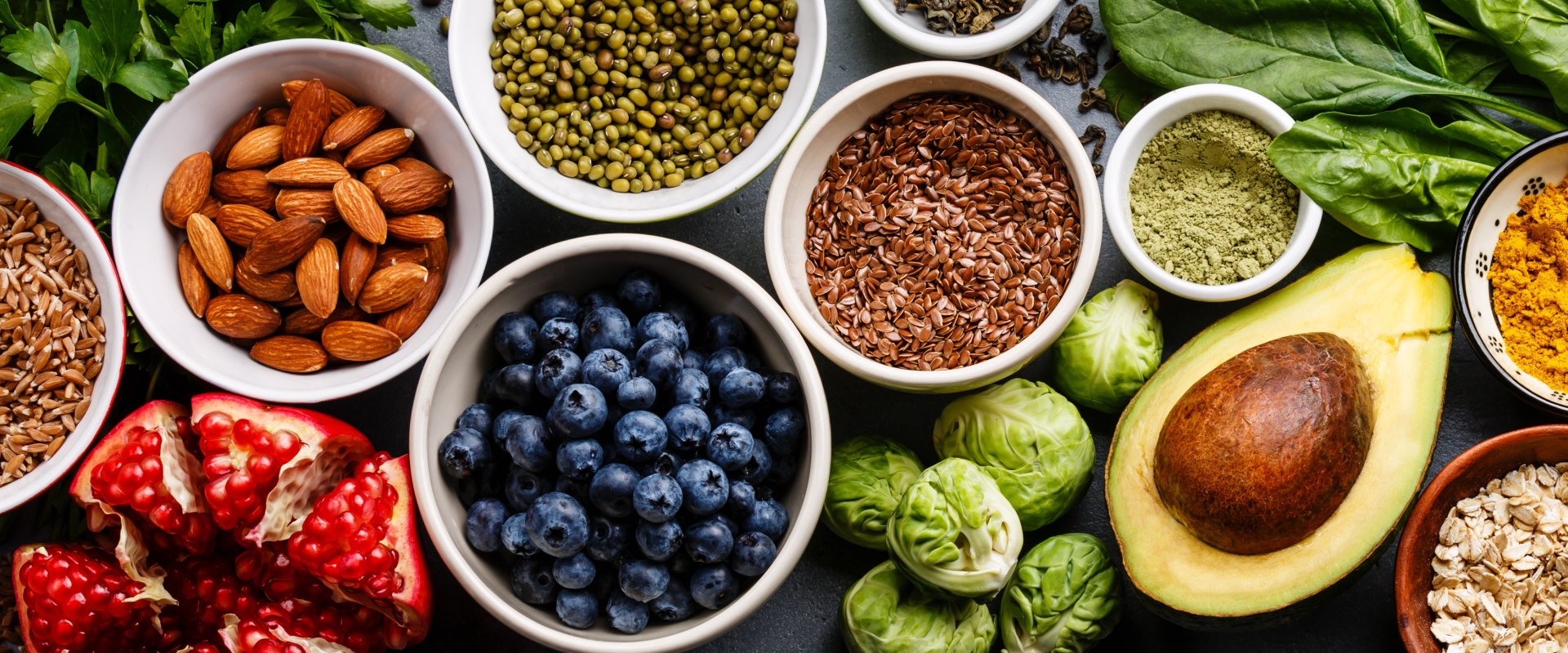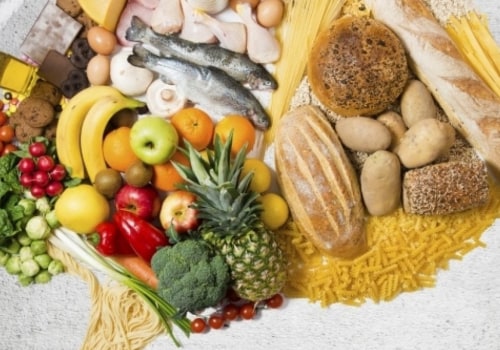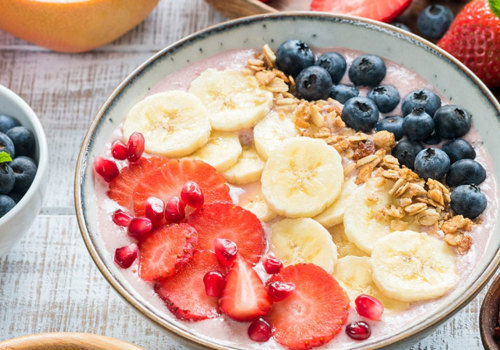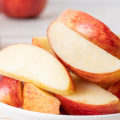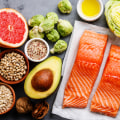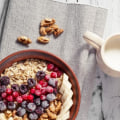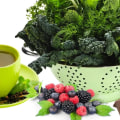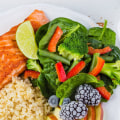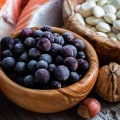Blueberries are at the top of almost every superfood list, but just about any edible berry deserves superfood status. Here are 16 foods that may deserve the esteemed title of superfoods. Part of what makes DGLVs so great is their potential to reduce the risk of chronic diseases, such as heart disease and type 2 diabetes (1,. Berries are an inexhaustible source of vitamins, minerals, fiber and antioxidants.
The strong antioxidant capacity of berries is associated with a reduced risk of heart disease, cancer and other inflammatory conditions (4,. Berries may also be effective in treating various digestive and immune disorders when used in conjunction with traditional medical therapies (. Whether you enjoy them as part of breakfast, as a dessert, in a salad or in a smoothie, the health benefits of berries are as versatile as their culinary applications. Berries are full of nutrients and antioxidants that can prevent certain diseases and improve digestion.
Originally from China, green tea is a lightly caffeinated beverage with a wide range of medicinal properties. Green tea is rich in antioxidants and polyphenolic compounds that have strong anti-inflammatory effects. One of the most common antioxidants in green tea is catechin gallate, epigallocatechin, or EGCG. EGCG is probably what gives green tea its apparent ability to protect against chronic diseases such as heart disease, diabetes and cancer (7,.
Research also indicates that the combination of catechins and caffeine in green tea may make it an effective weight-loss tool for some people (. Green tea is rich in antioxidants and has many health benefits, including potential cancer prevention. Historically, eggs have been a controversial topic in the nutrition world due to their high cholesterol content, but they are still one of the healthiest foods. Whole eggs are rich in many nutrients, including B vitamins, choline, selenium, vitamin A, iron and phosphorus.
Eggs contain two powerful antioxidants, zeaxanthin and lutein, which are known to protect eyesight and eye health (10, 1). Despite fears related to egg consumption and high cholesterol, research indicates that eating 6 to 12 eggs a week does not significantly increase the risk of heart disease or diabetes (1). In fact, eating eggs could increase “good cholesterol” HDL in some people, which could lead to a favorable reduction in the risk of heart disease. More research is needed to reach a definitive conclusion (1).
Eggs are rich in high-quality proteins and unique antioxidants). Research indicates that eating eggs regularly will not increase the risk of heart disease or diabetes. Legumes, or legumes, are a class of plant foods made up of beans (including soybeans), lentils, peas, peanuts, and alfalfa. Legumes are a rich source of B vitamins, various minerals, proteins and fiber.
Research indicates that they offer many health benefits, such as improving the control of type 2 diabetes, as well as reducing blood pressure and cholesterol (1). Eating beans and legumes regularly can also promote the maintenance of a healthy weight, due to their ability to improve feelings of fullness (1). Legumes are rich in many vitamins, proteins and fiber. They can prevent some chronic diseases and promote weight loss.
Nuts and seeds are rich in fiber, vegetarian proteins and heart-healthy fats. They also contain several plant compounds with anti-inflammatory and antioxidant properties, which may protect against oxidative stress (1). Research indicates that eating nuts and seeds may have a protective effect against heart disease). Interestingly, although nuts and seeds are calorie-dense, some types of nuts are linked to weight loss when included in a balanced diet (18, 19, 20).
Nuts and seeds are full of fiber and heart-healthy fats. They may reduce the risk of heart disease and contribute to weight loss. Fermented, probiotic-rich foods, such as kefir, have several associated health benefits, such as lowering cholesterol, lowering blood pressure, improving digestion, and anti-inflammatory effects (21, 22, 2). Garlic is a plant food that is closely related to onions, leeks and shallots.
It is a good source of manganese, vitamin C, vitamin B6, selenium and fiber. Garlic is a popular culinary ingredient because of its distinctive flavor, but it has also been used for its medicinal benefits for centuries. Research indicates that garlic may be effective in reducing cholesterol and blood pressure, as well as supporting immune function (2). In addition, sulfur-containing compounds in garlic may even play a role in preventing certain types of cancer (2).
Garlic is a nutrient-rich food that has been used for centuries for its medicinal benefits. It may be useful for supporting immune function and reducing the risk of heart disease and certain types of cancer. Adding olive oil to your diet may reduce inflammation and reduce the risk of certain diseases, such as heart disease and diabetes (26, 27, 2). Ginger may be effective in controlling nausea and reducing pain caused by acute and chronic inflammatory conditions (29, 30, 3).
It can also reduce the risk of chronic diseases such as heart disease, dementia and certain types of cancer (32, 33, 3). Studies show that curcumin can be effective in treating and preventing chronic diseases such as cancer, heart disease, and (35, 3) It can also help wound healing and reduce pain (37, 3). It is one of the best sources of omega-3 fatty acids, known for their various health benefits, such as reducing inflammation (3). Including salmon in your diet can also reduce the risk of heart disease and diabetes and help you maintain a healthy weight (40).
You can avoid potential negative effects by limiting fish consumption to two or three servings per week (4). Salmon is a good source of many nutrients, especially omega-3 fatty acids). Limit your consumption of salmon to avoid the potential negative effects of common contaminants in fish and seafood. It is rich in many nutrients, including fiber, vitamins, minerals and healthy fats (4).
Eating avocado may reduce the risk of heart disease, diabetes, metabolic syndrome and certain types of cancer (44, 45, 4). They're also a good source of carotenoids, a type of antioxidant that may reduce the risk of certain types of cancer (4). Despite their sweet taste, sweet potatoes don't raise blood sugar as much as you might expect. Interestingly, they may improve blood sugar control in people with type 2 diabetes (4).
Although the nutrient content varies by type, mushrooms contain vitamin A, potassium, fiber, and several antioxidants that are not present in most other foods (4). Interestingly, eating more mushrooms is associated with greater consumption of vegetables overall, contributing to a more nutritious overall diet (50). Because of their unique antioxidant content, mushrooms may also play a role in reducing inflammation and preventing certain types of cancer (49, 50, 5). Another great feature of mushrooms is that agricultural waste products are used to grow them.
This makes mushrooms a sustainable component of a healthy food system (50). Some of these compounds may also reduce the risk of cancer, heart disease, obesity, and diabetes (5). For optimal health, it is recommended to choose foods that contain the most nutrients). These are the 11 most nutrient-rich foods in the world.
Everyone knows that vegetables are healthy, but some stand out from the rest. Here are 14 of the healthiest vegetables out there. Eggs are so nutritious that they are often referred to as natural multivitamins. Many studies show that eating eggs regularly can improve your health.
Berries are among the healthiest and most nutritious foods in the world. Here are 11 ways eating berries can improve your health. Peppers are truly the versatile superfood. They come in all kinds of shapes and colors, all of which have their own flavors and uses.
Color is very often nature's way of telling us that there is goodness inside us, and peppers are the perfect example. Fermented foods, such as yogurt and kimchi, ranked first, probably because of their immune-boosting and gut-boosting benefits. According to researchers at the Stanford School of Medicine, a diet rich in fermented foods increases microbiome diversity and improves immune responses. To eat more fermented foods, try this recipe for homemade creamy yogurt or this recipe for cabbage pies with kimchi.
It's very likely that you haven't heard of Mankai, also known as the smallest vegetable in the world. I'm sure I didn't know anything about this little superfood until Samina Kalloo, RDN, CDN, director of nutritional communication at Pollock Communications, gave me an idea of its power to store proteins and vitamins. Despite its small size, Mankai has all nine essential amino acids, vitamin B, iron and more than 60 nutrients, Kalloo says. You and your SO,.
Turmeric, a spice you probably already have in your closet, can reduce inflammation, improve memory, reduce the risk of some chronic diseases and combat free radicals (also known as those that contribute to aging), Kalloo says. You might be familiar with tahini if your nighttime cravings include hummus and pita chips. Tahini, a main ingredient in hummus made from ground sesame seeds, originates in the Middle East, but has made its way into the aisles of Trader Joe's and Whole Foods. It can be a little disconcerting to figure out what exactly to do with pomegranates or seeds.
But its health benefits definitely outweigh any lingering confusion you may have. As an inexhaustible source of antioxidants, pomegranate seeds can protect cells from damage and help prevent diseases, says Golub. They are abundant in fiber, which helps digestion, in addition to containing vitamin C, vitamin K and folic acid, says Golub. If your body isn't an area suitable for dairy, there are still plenty of other fermented foods you can incorporate into your everyday meals.
Mix sauerkraut with coleslaw or other chopped salads. And don't forget pickles, which are a great addition to sandwiches and salads, Kalloo recommends. Every element on this page was chosen by a Women's Day editor. We may earn commissions on some of the items you choose to purchase.
They could fight diseases and boost your metabolism. For years, people have touted the powers of superfoods. These foods, which are considered beneficial to general well-being, have been linked to a sharper mind, clearer skin, a healthier immune system, and more. And while many dieticians have questioned superfoods, there's no question that some fruits, vegetables, and proteins offer more health benefits than others.
So the next time you want to switch up your salad or try something new, consider stocking up on the best “superfoods” for your body. Whether it's brain-boosting blueberries or cancer-fighting broccoli sprouts, these options are not only great for your health, but they're also delicious. And, as an added benefit, you can enjoy about 1 cup of cherries for just about 85 calories. According to the USDA, each egg has 6 grams of protein, but only 72 calories.
Eggs also have all nine essential amino acids and are rich in vitamins A, B12, B2 and B5, making them one of the most nutritious foods on the planet. Whether you prefer them in salads or over pasta, tomatoes are loaded with lycopene, a vegetable nutrient that gives tomatoes their red color. As Bauer explains on Women's Day, lycopene helps reduce inflammation and cell damage from exposure to the sun. Nutrients have also been linked to many benefits, such as keeping your heart healthy and protecting against strokes.
A study published in Neurology found that middle-aged men with a large amount of lycopene in their blood were 55% less likely to suffer a stroke. Prunes, which are dried plums, are full of polyphenols, plant chemicals that have been shown to increase bone density by stimulating bone-forming cells, according to research published in Osteoporosis International. Walnuts provide a healthy dose of alpha-linolenic acid, an omega-3 fat that has been shown to improve memory and coordination. Brussels sprouts are rich in glucosinolates, compounds that fight cancer and detoxify our body.
Add them to salads or pair them with a main course such as chicken or steak. According to researchers at Texas A%26M University, one or two servings of this anthocyanin-rich berry can dramatically increase the amount of antioxidants in the blood. Apples contain quercetin, an antioxidant and anti-inflammatory agent that may reduce the risk of lung cancer, according to research published in Cancer Medicine. This calcium-rich vegetable can protect bones and keep your skin glowing, Medical News Today reports.
Because steel-cut oats are less processed and full of more fiber than traditional oats, they digest more slowly, keeping you full all morning long. You'll get all the heart-healthy omega-3s you need in one day if you eat a 3-ounce piece of salmon for dinner. Pumpkin is full of alpha and beta-carotene, which naturally fight cancer. Half a cup of spinach provides more than five times the daily dose of vitamin K, which helps blood to clot and strengthens bones, according to Medical News Today.
Do you need a reason to add cauliflower to your diet? It's packed with cancer-fighting glucosinolates, reports the National Cancer Institute. A serving of steamed scallops has 17 grams of protein for just 90 calories. That amount of protein will keep you full until your next meal. Kale is packed with nutrients such as vitamin A, zeaxanthin and lutein, which keep your eyes healthy, reports the American Optometry Association.
Brown rice is a primary source of magnesium, a mineral that the body uses for more than 300 chemical reactions, such as bone formation and the conversion of food into energy. Oysters keep your immune system strong. A 3-ounce serving (about 6 oysters) provides a quarter of the daily iron, a mineral that helps blood carry oxygen to organs and tissues. A cup of edamame has a whopping 18 grams of vegetable protein, as well as lots of fiber, folic acid, and cholesterol-lowering phytosterols.
In addition, as Bauer explains to Women's Day, the combination of fiber and protein keeps you satisfied longer and stabilizes blood sugar to help control your appetite. Strawberries are loaded with ellagitannins, phytochemicals that can stop the growth of cervical and colon cancers, according to research published in the Journal of Agriculture and Food Chemistry. A great source of protein without meat, half a cup of cooked lentils provides you with your daily dose of folate, a B vitamin that protects the fetus from neural tube abnormalities. A review published in Nutrients found that kiwi, among other fruits, can reduce wheezing related to asthma thanks to its high vitamin C content.
The whole grains in bran flakes keep your heart in tip-top shape by reducing inflammation and triglycerides, Healthline reports. Black beans are loaded with protein, fiber, and flavonoids (antioxidants) that help arteries stay relaxed and flexible. Half a cup of asparagus provides 50% of the daily vitamin K for bone formation and a third of the day's folic acid. And since they are natural diuretics, they also eliminate swelling.
While superfoods really can't fly and I can't promise that eating them will give superhuman powers (such as the enormous increase in strength that spinach gives Popeye), the NHS does emphasize their importance in preventing long-term illnesses. It may not be the best addition to a conversation, but it is certainly the perfect complement to many recipes, such as this garlic risotto. It is one of the most indispensable ingredients in existence and can even be used as a raw superfood in dressings, sauces and butters. No matter what happened first, we appreciate it when chickens lay eggs.
They are an essential source of protein and if you want to discover a new way of cooking them, check out the recipe for Middle Eastern eggs rolled in dukkah. While it might not make you as strong as Popeye, it's a raw weight-loss superfood that also keeps your nutrients cooked. It goes with anything from a salad to a curry, and it certainly adds a nice touch to this sweet potato and spinach curry. Don't let this one jump out of your shopping cart.
Oil-rich fish will give you the energy you need to swim upstream among the strongest. Follow this recipe for Mexican salmon steak and your taste buds will jump like a group of men at a mariachi festival. . .
